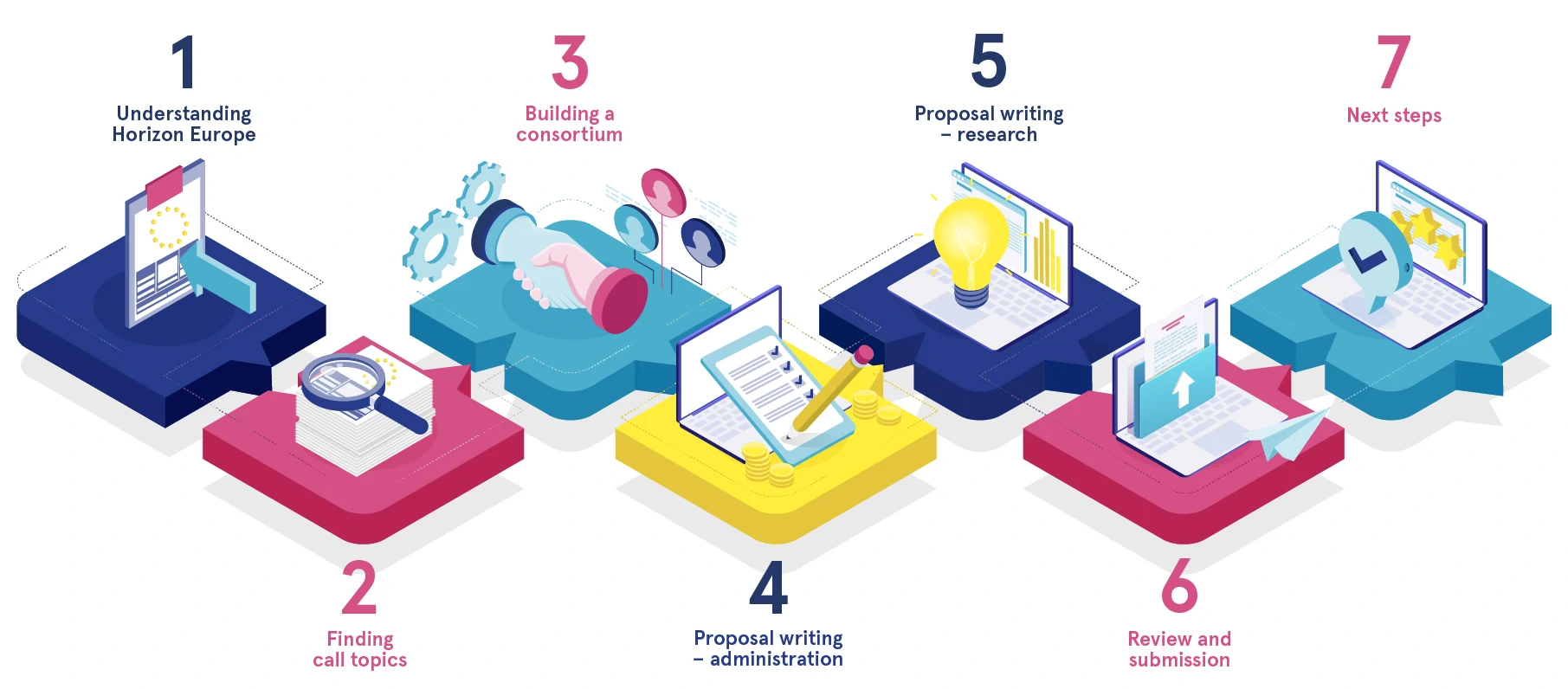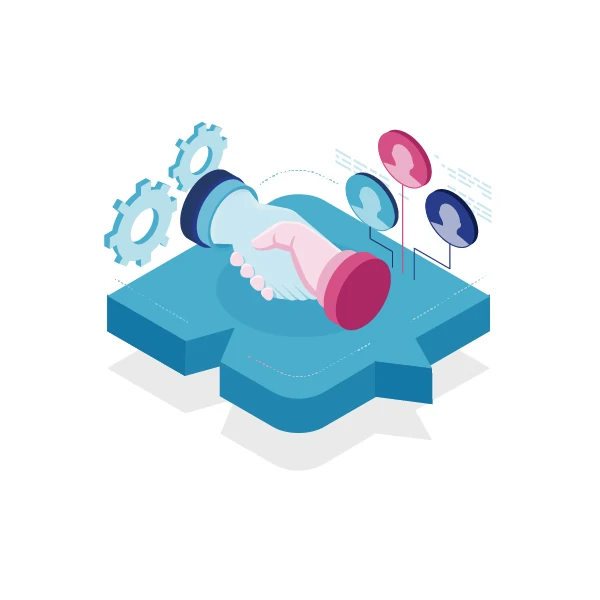Horizon Europe is the main European Union funding programme for research and innovation. Running from 2021 until 2027, it has a total budget of €95.5 billion, of which €8.246 billion is dedicated to health research.
As part of our commitment to fostering and enhancing European and international coordination, collaboration and engagement, the Health Research Board (HRB) offers advice and support to researchers who would like to apply for Horizon Europe funding. We host one of two National Contact Points (NCPs) for Horizon Europe Health in Ireland, who provides guidance, practical information and assistance to researchers interested in the programme. The second NCP for Horizon Europe Health is hosted by Enterprise Ireland. Both NCPs operate as a cross-organisational support team.
This guide brings together a range of resources on Horizon Europe, taking you through the researcher’s journey – from understanding the programme aims and identifying relevant call topics, to finding partners and writing a competitive proposal.
Scroll down for an overview of the journey and click to explore more about each stage. We will highlight how the NCP can help you navigate the process along the way.








